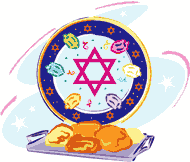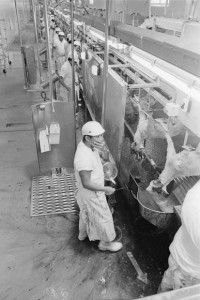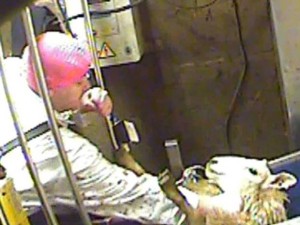I don’t get the kosher-halal food thing, seems to involve excessive animal suffering, but hey, who doesn’t want to make a buck and fly live animals for slaughter 150 years after frozen food transport was invented.
 According to Michele Henry of the Toronto Star, for the first time in Canada, the country’s food inspection agency has laid criminal charges against a businessman and his company for allegedly trying to pass off run-of-the-mill food as kosher.
According to Michele Henry of the Toronto Star, for the first time in Canada, the country’s food inspection agency has laid criminal charges against a businessman and his company for allegedly trying to pass off run-of-the-mill food as kosher.
The Canadian Food Inspection Agency has charged Creation Foods and its vice-president, Kefir Sadiklar, with sending cheddar cheese falsely described as “kosher” to Jewish summer camps in June 2015. The agency alleges forged documents were created to make it seem like the cheese adhered to Jewish dietary laws.
The regulatory body, which polices food labels across Canada, has laid five charges against Sadiklar and his family-run Woodbridge-based distributor related to cheese products sent to two camps — Camp Moshava near Peterborough and Camp Northland-B’nai Brith in Haliburton.
The agency alleges that forged letters of kosher certification were slipped into boxes of non-kosher Gay Lea Ivanhoe shredded “Ivanhoe Old Cheddar Cheese” that Creation delivered to “strictly kosher” Jewish summer camps in June 2015. Kosher products are typically sold at a higher price than non-kosher products.
In an email to the Star, the federal food inspection agency said this is the first case it “has brought before a provincial court related to the misrepresentation of a kosher food product.”
Sadiklar, 39, is scheduled to make his next appearance in Newmarket court on May 20.
 If convicted, he and Creation could face steep fines and even jail time.
If convicted, he and Creation could face steep fines and even jail time.
The allegations made by the Canadian Food Inspection Agency have not been tested in court.
The term “kosher” refers to food that follows Judaism’s strict dietary rules that dictate not only what observant Jews can eat, but how the food is prepared and handled. In the case of making cheese, a rabbi would be responsible for adding the coagulation enzyme at the first stage and certifying that no non-kosher products touched the kosher cheese on the line.
A rabbi has more microbiological knowledge than a microbiologist?
Market food passed on safety, not some weird religious stuff.
If god was so caring, why are so many people getting sick from the food they eat?(Darwin had the same problem with religion after his daughter, Annie, died at 10-years-old).





 “Particularly in the recent past, Americans have been overwhelmed by food safety scares. People are very concerned and having some certification on the foods they buy can appease some of those fears.”
“Particularly in the recent past, Americans have been overwhelmed by food safety scares. People are very concerned and having some certification on the foods they buy can appease some of those fears.”.gif) The report said,
The report said,  The rating ranges from no stars for the worst levels of compliance, through to five stars for the very best standards of food safety management. A two star rating is defined as largely compliant with national requirements.
The rating ranges from no stars for the worst levels of compliance, through to five stars for the very best standards of food safety management. A two star rating is defined as largely compliant with national requirements.